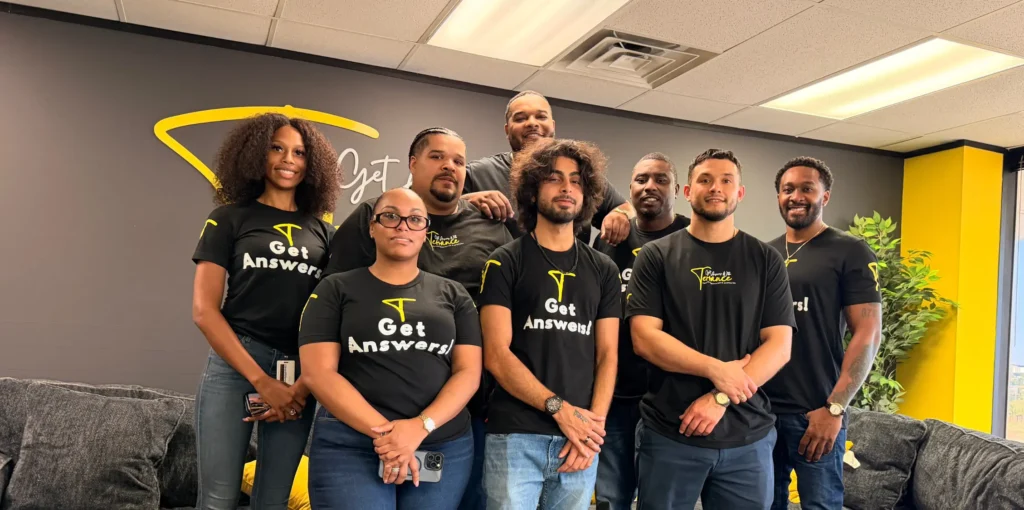Locate Missing Person: 26-Year-Old Vanishes After Family Fight
Locate Missing Person: 26-Year-Old Vanishes After Family Fight
net synergies realized above the initial target in the first year
Client Background
Sarah was a responsible, career-oriented young woman who spoke to her mother every day. When she failed to come home after work and her car was found abandoned in a Houston park with the keys in the ignition, her mother knew this wasn’t a simple “need for space.” Despite the alarming circumstances, the police were limited because there was no initial evidence of a struggle or foul play. Her mother refused to accept that her daughter would simply walk away from her life, her job, and her belongings. She turned to us to find the answers the “system” couldn’t provide.
Challenge
Adult Status: Legally, adults have the “right to be missing,” which prevents police from using many investigative resources unless a specific crime is proven.
Psychological Manipulation: Unlike a kidnapping involving physical locks, this case involved “grooming” and cult-like psychological control, making the victim appear as though she was staying voluntarily.
Digital Silence: Sarah had been instructed to leave her phone behind and use only cash, severing the most common ways to track a missing person.
Remote Location: The subject was hidden in a rural area, three hours away from Sarah’s home, purposefully chosen for its isolation.
Investigations
Our team utilized a blend of high-tech forensics and classic boots-on-the-ground surveillance:
Social Media Forensics: We bypassed Sarah’s public profiles and uncovered a secondary private Instagram account. We identified a “spiritual guide” who had been grooming her for months, convincing her to “break old patterns” by cutting off family.
Visual Geolocation: A photo posted by another follower of the group showed a distinctive water tower in the background. Our team identified the specific rural town and cross-referenced it with LLC property records linked to the “life coach.”
Field Surveillance: Once we located the remote farmhouse, we conducted 48 hours of covert surveillance. We confirmed Sarah’s presence and observed a disturbing pattern of sleep deprivation and forced labor disguised as “meditation and farm work.”
The Extraction: Working with local authorities for a wellness check, we confronted the group leader. By creating a safe window for Sarah to speak away from his influence, we broke the psychological hold. Once she realized her family was looking for her, she chose to leave immediately.
Results
The investigation resulted in a successful recovery and long-term resolution:
Safe Recovery: Sarah was located alive and brought back to Houston for medical and psychological evaluation.
Exposing the Predator: Our evidence regarding the isolation and financial exploitation of the group led to an official investigation into the “life coach,” resulting in the property being shut down.
Medical Intervention: Sarah was treated for severe malnutrition and sleep deprivation—symptoms of the “spiritual awakening” program.
Reunification: After months of therapy, Sarah successfully re-entered her professional life and restored her relationship with her family.
The Bottom Line: A missing person doesn’t always need to be behind bars to be a prisoner. When police say their “hands are tied” because a loved one is an adult, a private investigator has the freedom to follow the trail until they are found.
The Results
Customer orders remained steady during the sales transition, and financial performance in the impacted business units exceeded internal forecasts.
Sales representatives were shifted toward the future-state, guided by the new organization structure, territories, product coverage, and compensation design in both North America and Europe.
The combined company was also on track toward full integration of sales enablement tools, including revised training programs, rationalized sales IT systems and updated sales dashboards and performance metrics.
Identified net synergies for the third year expected to exceed expectations at 1.5 times the initial target.
Guide the Process and Solve Problems
A weekly, executive-level decision mechanism to guide the process and solve problems as they arise.
“We wouldn’t have gotten to where we are today without Finovate. The Finovate spent time with us to better understand our processes and where our bottlenecks were.”



